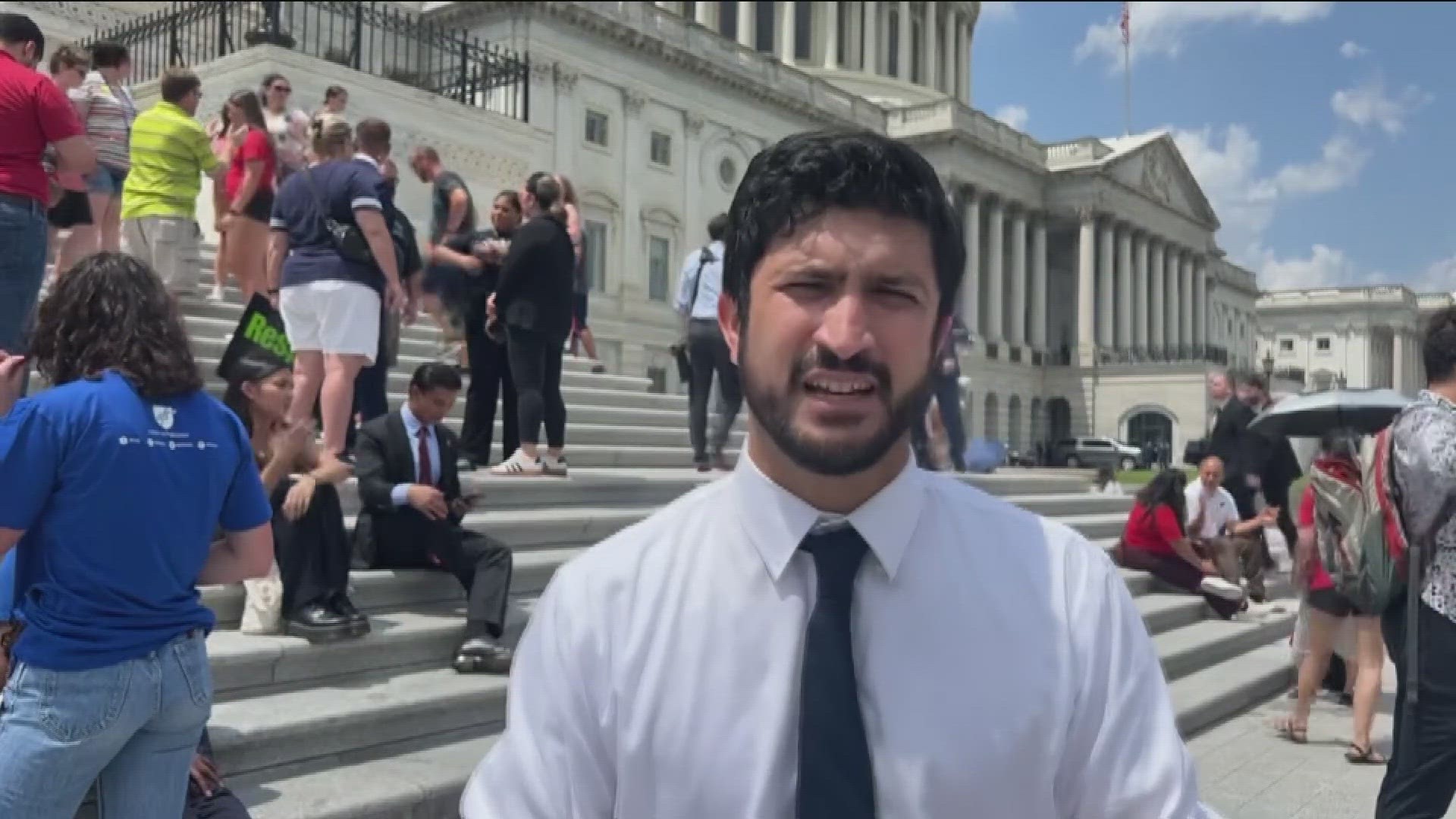AUSTIN, Texas — For Austin construction worker Eva Marroquen, enduring the heat is a regular part of her job. But she fears it could get worse under House Bill 2127, which prevents cities and counties from enforcing local ordinances in areas that are already regulated by state law – including worker protections.
One of the main concerns among opponents of the law, which goes into effect on Sept. 1, is that it will revoke mandated water breaks for construction workers.
What Marroquen wants are federal heat protections for workers like herself.
"To avoid more deaths, avoid mistreatment or sicknesses that come from extreme heat," Marroquen said.
She was in Washington, D.C., Tuesday with Congressman Greg Casar, who was participating in an all-day hunger and thirst strike. He was refusing to drink water, eat food or take a break until nurses required him to stop.
"Whether you work in a warehouse or you're digging a trench or you're building a roof, you should have the right to be able to come off a scaffold, stop working if you're feeling sick and get a drink of water," Casar said.
The Occupational Safety and Health Administration (OSHA) does not have regulations specifically designed for extreme heat. The agency declined an interview with KVUE but sent the following statement:
“Heat illness prevention is one of the Occupational Safety and Health Administration’s top priorities and we’re working diligently towards developing a proposed rule to protect workers from heat illness. In the meantime, we are taking several measures to protect workers better in hot environments and reduce the dangers of exposure to ambient heat. As we work towards proposing a rule on heat illness prevention, we’re also enhancing our enforcement compliance efforts to make sure employers and workers understand the dangers of heat illness and how to prevent it. OSHA strongly encourages employers to reach out to our compliance assistance specialists around the country for information on how best to address heat-related hazards at their workplaces.” – OSHA Assistant Secretary Doug Parker
"We want our bosses to give us the option of taking a water break for every four hours worked," Marroquen said.

